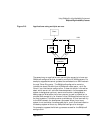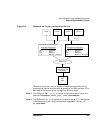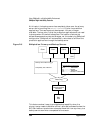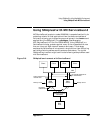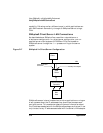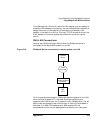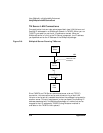
Appendix D 367
Using SNAplus2 in a High Availability Environment
Using SNAplus2 with MC/ServiceGuard
Step 1. List all of the mission critical applications that use SNAplus2 for SNA
network connectivity.
Step 2. Diagram your network topology so that you know the location of the
servers that are part of the ServiceGuard cluster and any other systems
needed for SNA network connectivity.
Step 3. List the SNAplus2 LSs that must be highly available. The SNAplus2 LSs
are what will be monitored by ServiceGuard to determine if the HP 9000
server is providing SNA network connectivity. If all of the highly
available SNAplus2 LSs are active, the server is providing SNA network
connectivity.
Step 4. Identify a primary server and one or more backup servers for the
SNAplus2 package. When the primary server fails to provide SNA
network connectivity (that is, the SNAplus2 LS is no longer active),
ServiceGuard will automatically migrate the package to another server
system.
Note that to simplify the package migration during failure episodes, we
recommend that you run only one SNAplus2 package in your
ServiceGuard cluster; that is, at any one time, only one system in a
ServiceGuard cluster will be running a highly available SNAplus2 LS.
Backup systems in your cluster can provide SNAplus2 services for
non-mission critical applications.
Step 5. Define how the mission critical applications will be impacted by the
migration from one server to another. Since LU-LU sessions will be lost,
specify what you will be required to do to re-activate an LU-LU session
through another server system. If an application needs to be restarted
after a server system failure (perhaps because the application runs on
the server), determine if you want ServiceGuard to automate the
application startup.
Step 6. Create a set of commands that ServiceGuard will issue when an
SNAplus2 LS fails so that the migration to a backup server happens
smoothly. Make sure this set of commands contain halt commands to
free SNAplus2 resources on the primary server and run commands to
activate the necessary resources on the backup server.
Figure D-4, “SNAplus2 on Primary and Backup Servers,” (shown
previously) illustrates these steps. The picture shows the network
topology including the SNAplus2 servers and clients. The mission critical
applications are APPC TPs. The SNAplus2 LS that is highly available is
HALS. The primary server is hp_pri and the backup server is ha_back.





